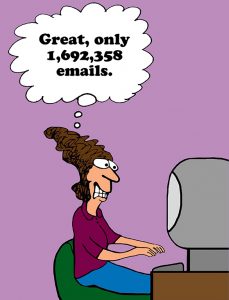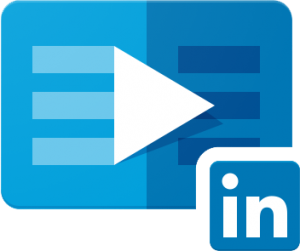
- The Power of Believing that You Can Improve. C. Dweck. November 2014. (10:21)

- Be Ethical a Call to Healthcare Leaders Ending Gender Workforce Disparities Is an Ethical Imperative. J. Silver. September 17, 2017 (v.2)
- How to Speak Up for Yourself. Adam Galinsky. 2016. (15:09)

- Caretaking in Academic Medicine: From Pregnancy Through Early Parenting. Toolkit created by the AAMC Group on Women in Medicine and Science (GWIMS). 2018 (PDF).
- How to Get the Most Out of a Conference. Whitaker, M. (March 26, 2018). The Chronicle of Higher Education.
- Gendered Expectations: Do They Contribute to High Burn Out Among Female Physicians? Linzer, M. and Harwood, E. (2018). Journal of General Internal Medicine.
- The Art of ‘No’. Bernstein, R. The Chronicle of Higher Education, March 20, 2017.
- Managing and Surviving Change: A Practical Toolbox. Kevin Grigsby, D.S.W. March 12, 2013. (54:26)

- Your Body Language Shapes Who You Are. Amy Cuddy. 2012. (20:55)

- National Center for Faculty Development and Diversity. UConn has an institutional membership and you can enroll by following the instructions.
- Power in Law: Lessons from the 2011 Women’s Power Summit on Law and Leadership. Read about 7 strategies for getting, using and keeping power. Chanow, L.B. and Rikleen, L.S. (2012) From the Center for Women in Law, University of Texas School of Law.
- Surviving and Thriving in Academia: A Guide for Members of Marginalized Groups. American Psychological Association Committee on Women in Psychology.
Implicit Bias
- Teaching About Racism and Health Disparities in an Inclusive Environment. Zita Lazzarini, J.D., M.P.H., and David Henderson, M.D. July 28, 2016. (58:34)

- Racism Among the Well-Intentioned: Causes, Relationship to Health Disparities, and Interventions. Jack Dovidio, Ph.D., Professor of Psychology, Yale New Haven Hospital. March 24, 2016. (1:05)

- Society of Teachers of Family Medicine Racism in Medicine Toolkit
- What You Don’t Know Can Hurt You: Gender Stereotypes and Academic Career Advancement. Molly Carnes, M.D., M.S., University of Wisconsin-Madison. November 17, 2010. (58:27)

- Do You Wonder What “Implicit Bias” Is? Go to Project Implicit.
- Either register, or click on “continue as guest”.
- Click on “general information about the IAT”, and the link for FAQs.
- Take one or more of the Implicit Association Tests (IAT). There are IATs for gender, race, religions, disabilities, and more.
Multiple Role Management
- Off Balance on Purpose: The Future of Engagement and Work-Life Balance. Ted Thurmon. 2013. (18:07)

- More “Not So Secret” Secrets to Work-Life Balance. Kathleen Ashton, Ph.D. (2017)
- How to Make Work-Life Balance Work. Nigel Marsh. 2010 (10:05)

Myers Briggs Type Indicator
- Myers-Briggs Type Indicator. Carol Pfeiffer, Ph.D., July 5, 2016: The Myers-Briggs type indicator will help you think about your own preferences for gathering information and using it, and how those preferences impact your interactions with others. (15:50)

- The Power of Introverts. Susan Cain. 2012. (18:56)

Retirement
- Retirement Plan Summaries and Online Workshops (State of Connecticut)
- Retirement Tools and Checklists (UConn Health)
- Emeritus Faculty Appointments: See links on Faculty Handbook
Seeking Mentors
- Mentoring Resource Page at Another Institution
- Mentoring and Advising. Rackham Graduate School, University of Michigan
- Nature Mentoring. An online resource at Nature offering advice and support to scientist mentors and their mentees.
- Obtaining Mentors. Mary Casey Jacob, Ph.D., ABPP. April 28, 2017. This video will help you identify your mentorship needs, think about who might mentor you, and how to request mentorship. (22:17)

- Being an Effective Mentee. Mary Casey Jacob, Ph.D., ABPP. April 28, 2017. This video will help you negotiate a "contract" with a mentor, structure your time with your mentor, and gracefully end formal mentorship when the time comes. (9:21)

- Mentoring and Being Mentored. Chapter 5 in Making the Right Moves: A Practical Guide to Scientific Management for Postdocs and New Faculty.
Stress Management
- Introduction to Relaxation Techniques for Stress Reduction. Mary Casey Jacob, Ph.D., ABPP. June 10, 2016. Learn about the use of relaxation techniques for the purpose of stress reduction. (5:30)

- Introduction to Stress Management. Mary Casey Jacob, Ph.D., ABPP. July 5, 2016. An introduction to the components of feeling stressed and how to begin to modify your responses to stressful situations. (25:41)

- How a Dean Got Over Impostor Syndrome - and Thinks You Can, Too. Chronicle of Higher Education, November 26, 2017.
- How Successful People Stay Calm. Bradberry, T. (2014) Forbes. February 6, 2016.
- Assessment: How Mindful Are You? Carter, J., Hougaard, R. and Stembridge, R. Harvard Business Review, March 29, 2017.
- Who Moved my Cheese?, by Spencer Johnson (1998). This is a book about dealing with change.
- Wherever You Go There You Are, by Jon Kabat-Zinn (2005). This is a book about mindfulness meditation in everyday life.
- Don't Sweat the Small Stuff… And It's All Small Stuff, by Richard Carlson (2005). A book about how to keep from letting the little things in your life get to you.
- The Relaxation and Stress Reduction Workbook, by Martha Davis, Elizabeth Robbins Eshelman, and Matthew McKay (6th edition, 2008). Includes step-by-step techniques for coming the body and the mind.
- The Worry Workbook, by Les Carter and Frank Minirth (2000). Practical steps and interactive exercises.
- 5, 10 and 20 Minute Guided Meditation. Norman Andrekus. MP3s.

- Headspace. A meditation app.
- Meditation Oasis. Offers meditation resources including downloadable guided meditations and books.
- Relax and Sleep Well. Glenn Harold. Twenty minute guided meditation with music.
- Relax*Change*Create. Andrew Johnson. Relaxation apps and MP3s.
- Belly Bio. An iPhone app that uses the device’s accelerometer to monitor proper diaphragmatic breathing.
- BreathPacer. A paced breathing app.
- How to Do Progressive Muscle Relaxation. An article on how to relax your muscles.
 Time and Email Management
Time and Email Management
- Time and Email Management. Anne Kenny, M.D. August 24, 2016. (17:15)

- In Box Zero. Merlin Mann. July 23, 2007. (58:41)

- How to Gain Control of Your Free Time. Laura Vanderkam. 2015 (11:54)

- How to Trim Your Inbox, Stop Checking Email and Be More Productive. Sabina Nawez, (2017) Inc.
- Time Management. Chapter 6 in Making the Right Moves: A Practical Guide to Scientific Management for Postdocs and New Faculty
- Getting Things Done. David Allen. May 22, 2014. (1:32:31) For a brief summary of this material, read Five Productivity Tips That'll Make You Rethink Your Day. Paul Petrone. February 23, 2017.

- Getting Things Done: The Art of Stress-Free Productivity, by David Allen. 2002. Penquin Books.
- First Things First, by Stephen R. Covey, A. Roger Merrill, and Rebecca R. Merrill. 1994. Simon & Schuster.